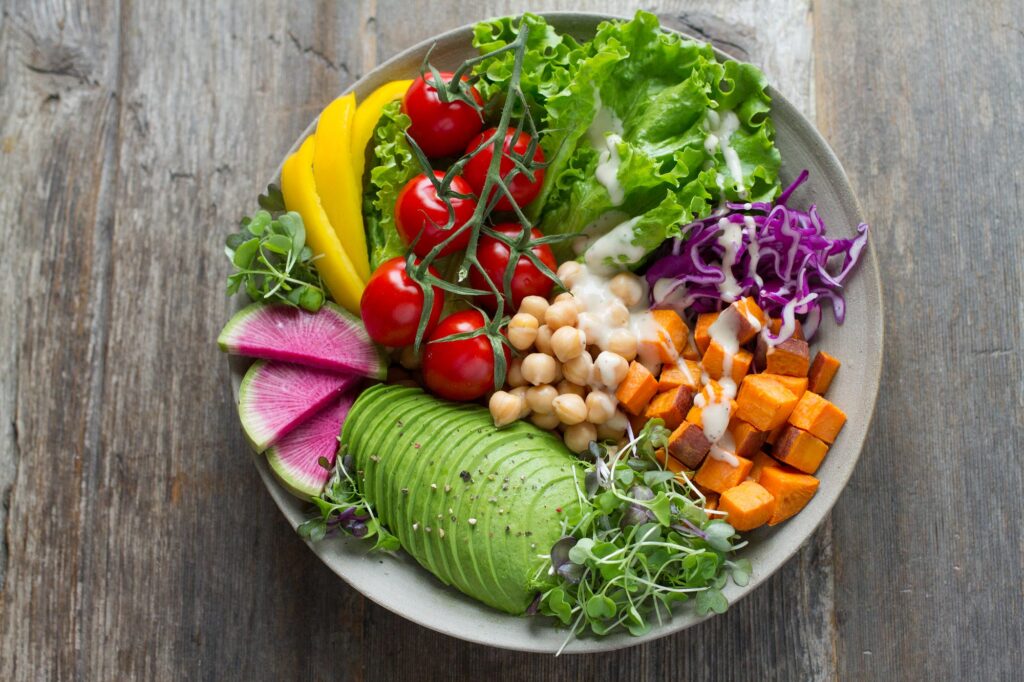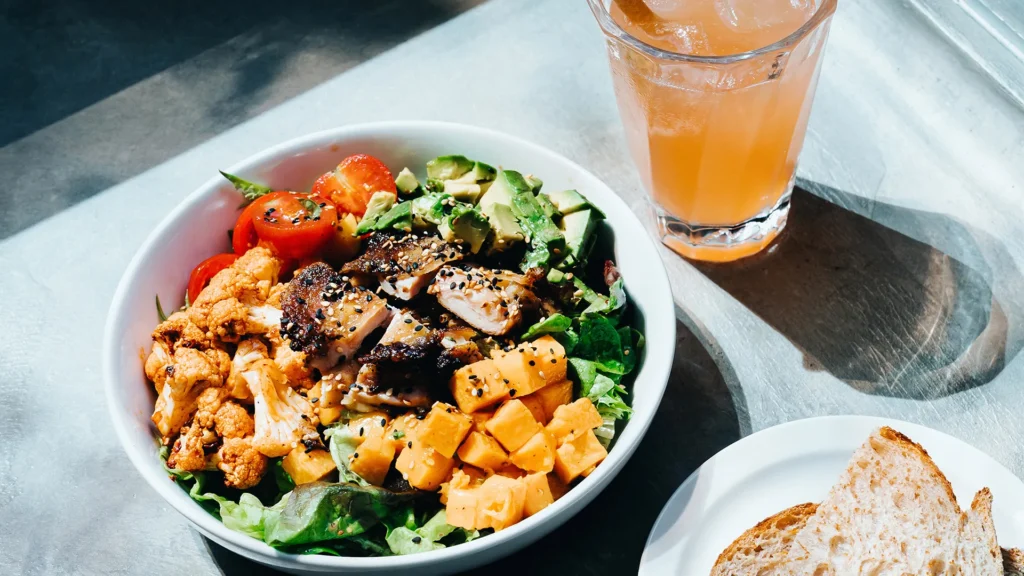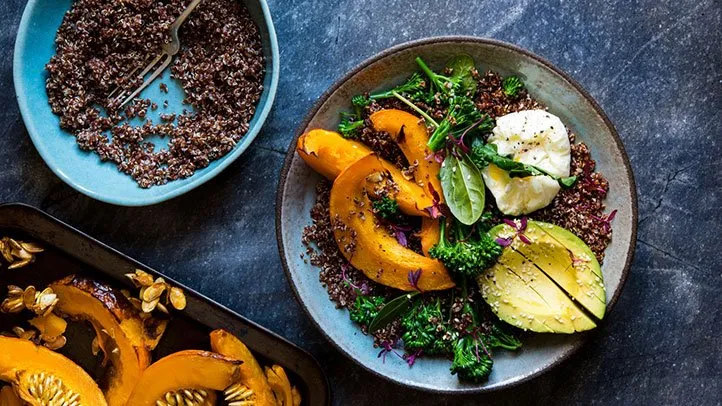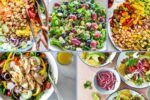Switching to a vegetarian diet—even for just 30 days—can create a surprising range of changes in your body, mind, and overall wellbeing. Whether you’re looking to improve your health, support animal welfare, or reduce your environmental impact, the first month of vegetarian eating is both a physical and mental journey.
In this article, we’ll walk you through what you can expect—week by week—when you adopt a vegetarian lifestyle, along with the science behind each change. No meat, no fish—just plants, grains, legumes, nuts, and dairy (if included).
Week 1: The Adjustment Phase

Digestive Reset Begins
As soon as you cut out meat, your body begins to adjust to an increased intake of plant-based foods—fruits, vegetables, whole grains, legumes, nuts, and seeds. These are typically high in dietary fiber, which helps promote regular bowel movements and improve gut health.
What you may feel:
- Bloating or gas as your body adjusts to higher fiber
- More frequent bowel movements
- Possible cravings for meat-based comfort foods
Why it happens:
The average omnivorous diet tends to be low in fiber, so when you start consuming more plant foods, your digestive system kicks into gear. Fiber feeds the good bacteria in your gut, helping improve your microbiome—a key player in immunity and digestion.
Hydration Boost
Many plant foods, like cucumbers, oranges, melons, and leafy greens, have high water content. This naturally boosts hydration, helping your skin, kidneys, and digestion.
Week 2: Energy and Mood Shifts

Increased Energy (or Fatigue)
As your body adapts to new sources of nutrients, your energy levels may start to change. Many people report feeling lighter and more energetic by the second week. However, if your transition is not well-planned, you could also feel sluggish due to missed nutrients like iron, B12, or protein.
How to maintain energy naturally:
- Include plant-based iron sources like spinach, lentils, chickpeas, and tofu
- Combine them with vitamin C-rich foods like oranges or tomatoes to enhance absorption
- Eat whole grains like quinoa, oats, and brown rice for steady energy
Mental Clarity
Some individuals notice improved focus and mental clarity, potentially due to better blood sugar regulation and fewer inflammatory foods.
What to watch:
- A sudden drop in energy might signal low calorie or protein intake
- Fatigue may also arise from low B12 or iron levels if you’re not supplementing or including fortified foods
Week 3: Physical and Emotional Improvements

Improved Skin Health
By now, the increase in antioxidants, vitamins (like A, C, and E), and hydration from plant foods can start to show up on your skin.
You may notice:
- Fewer breakouts
- Brighter complexion
- Reduction in puffiness and dryness
Weight Stabilization or Loss
A well-balanced vegetarian diet is often lower in calories and saturated fat. You may naturally shed a few pounds, especially if your previous diet was heavy in processed meats or fried foods.
Key foods for healthy weight loss:
- Legumes (lentils, beans) for fiber and protein
- Leafy greens for bulk without calories
- Whole grains for lasting fullness
Better Sleep Patterns
A diet rich in magnesium (found in nuts, seeds, and leafy greens) may help regulate sleep patterns and improve quality of rest. Avoiding heavy meat-based meals in the evening can also make sleep less interrupted.
Week 4: Long-Term Health Benefits Begin

Cholesterol and Blood Pressure Improvements
After 30 days, blood lipid profiles may start to improve. Studies have shown that plant-based diets can significantly lower total and LDL (“bad”) cholesterol levels.
Foods that help:
- Oats and barley: rich in beta-glucans that lower cholesterol
- Nuts like almonds and walnuts: full of heart-healthy fats
- Leafy greens: help manage blood pressure through nitrates and potassium
Reduced Inflammation
A vegetarian diet is naturally rich in anti-inflammatory foods. Fruits, vegetables, turmeric, ginger, flaxseeds, and chia seeds can all help reduce inflammation, which is linked to chronic illnesses like arthritis, heart disease, and even depression.
Nutrients to Pay Attention To

While a vegetarian diet can be incredibly nutritious, it’s important to be intentional about getting key nutrients to avoid deficiencies.
1. Protein
Aim for a variety of sources daily:
- Lentils, chickpeas, black beans
- Tofu, tempeh, and edamame
- Quinoa, chia seeds, hemp seeds
- Greek yogurt and cheese (if you include dairy)
2. Vitamin B12
This essential vitamin is typically found in animal products. For vegetarians, fortified foods (like plant milks or breakfast cereals) or a B12 supplement are necessary.
3. Iron
Plant-based iron (non-heme) is less easily absorbed than heme iron from meat. Pair iron-rich foods with vitamin C sources to boost absorption:
- Iron-rich: spinach, lentils, pumpkin seeds
- Vitamin C: bell peppers, oranges, strawberries
4. Omega-3 Fatty Acids
Essential for brain and heart health:
- Flaxseeds, chia seeds, walnuts
- Algae-based omega-3 supplements
5. Zinc and Calcium
Found in:
- Zinc: legumes, whole grains, pumpkin seeds
- Calcium: leafy greens, fortified plant milks, almonds, tahini
Psychological and Ethical Shifts
Aside from physical health, many people report emotional and psychological benefits from going vegetarian. These include:
Sense of Purpose
Choosing a diet that aligns with your values—whether it’s compassion for animals, concern for the planet, or spiritual practice—can bring a sense of fulfillment.
Mindful Eating
A vegetarian diet often encourages more intentional food choices. This awareness can deepen your relationship with food, improve your digestion, and reduce overeating.
Final Thoughts: Is 30 Days Enough?
While one month is a great start, the true benefits of a vegetarian diet are best experienced over the long term. However, 30 days can:
- Reset your digestive system
- Lower cholesterol and blood pressure
- Improve energy and mood
- Support healthy weight
- Kick-start long-lasting habits
Even if you decide not to stay vegetarian permanently, this trial can teach you how to incorporate more plant-based meals into your routine and be more conscious of your nutritional needs.
Tips for a Successful 30-Day Vegetarian Journey
- Plan Your Meals – Ensure variety and balance to prevent boredom and meet nutrient needs.
- Batch Cook Staples – Cook lentils, beans, grains ahead of time for easy meals.
- Try Global Cuisines – Explore Indian, Mediterranean, Thai, or Ethiopian dishes for exciting vegetarian options.
- Read Labels – Not all processed vegetarian foods are healthy. Watch for sodium, sugar, and additives.
- Stay Inspired – Follow vegetarian blogs, YouTube chefs, or use a meal tracking app to stay motivated.
Ready to Start?
Going vegetarian for 30 days is more than just cutting out meat—it’s a chance to learn about nutrition, rethink your eating habits, and potentially unlock a healthier, more energized version of yourself.
Whether you stay vegetarian long-term or just use it as a reset, your body (and the planet) will thank you.




